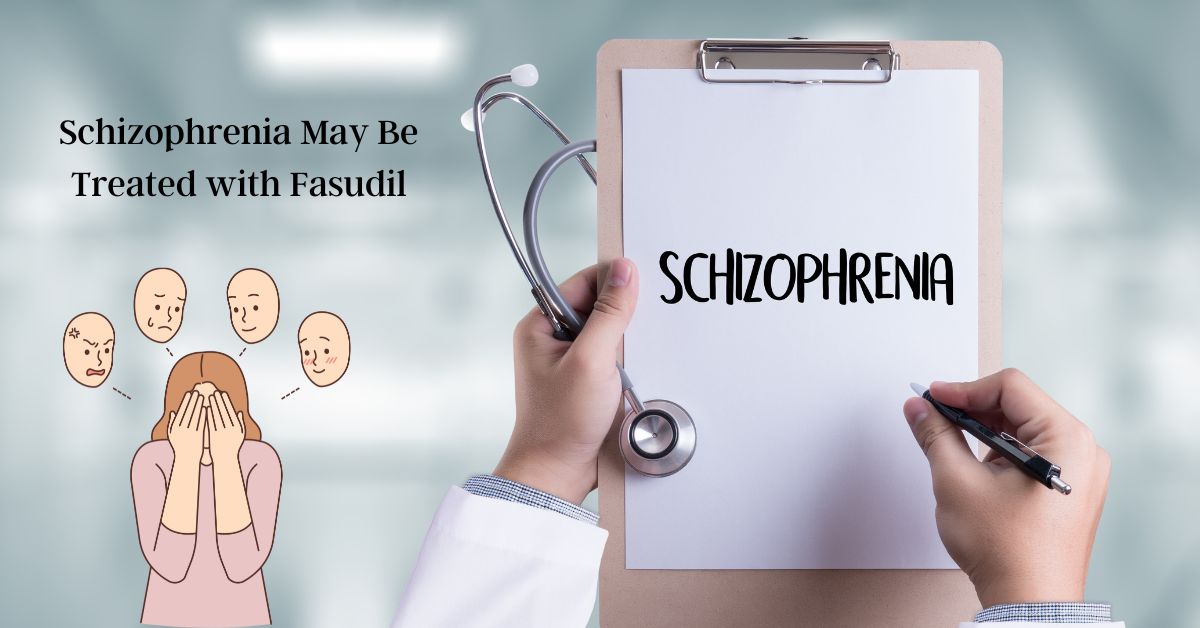Schizophrenia is one form of mental illness that can have serious consequences for a person’s ability to function normally. Mental health professionals and researchers are actively investigating the causes of schizophrenia and developing effective treatments.
A recent study demonstrated that a medication called fasudil effectively alleviated schizophrenia symptoms and brain abnormalities in mice. Pharmacological Research is where you may read about the study.
Methods for Treating Schizophrenia, A Serious Mental Disease!
Schizophrenia is a serious mental disorder that severely impacts sufferers’ ability to function in daily life. Many people with schizophrenia report hearing or seeing things that aren’t actually there. There’s a chance they have issues with learning and memory, too. A wide range of symptoms may be experienced.
A psychiatrist and mental health expert, Dr. Ketan Parmar, who was not engaged in the study, described the effects of schizophrenia to Medical News Today as follows:
“Schizophrenia is a mental disorder that affects how an individual perceives reality and interacts with others. It is one of the most severe forms of mental illness, typically characterized by hallucinations, delusions, disorganized speech and behavior, as well as cognitive deficits.”
People with schizophrenia have trouble with reality perception and social interactions. Hallucinations, delusions, disorganized speech and behavior, and cognitive deficiencies are common symptoms of this severe mental illness.
Dr. Parmar claims that new information “concerning schizophrenia’s genesis and physiology” has been uncovered in recent years, which may one day result in more effective therapies for the disorder.
Remedying Cognitive Symptoms of Schizophrenia
However, Dr. John Cottone, a licensed psychologist specializing in schizophrenia, who was also not engaged in the study, explained the importance of drugs in the treatment of schizophrenia:
“Antipsychotic medication, typically with drugs that inhibit dopamine expression, is the most common treatment for schizophrenia, but these drugs, when effective, work mostly on psychotic symptoms, but hardly at all on the mood or cognitive symptoms of schizophrenia.”
Dr. Cottone mentioned that antidepressants and mood stabilizers are commonly used to treat these types of mood disorders. When asked about potential treatments for schizophrenia’s cognitive symptoms, he responded, “However, there are still few or no possibilities.”
Mental processing differences in schizophrenia are still a mystery. Genes and mutations that may have a role in the onset of schizophrenia are also of interest.
Schizophrenia and a Mutated Gene
In this study, mice carrying specific mutations in the Arhgap10 gene were analyzed. People with this mutation are more likely to develop schizophrenia. These mutated mice displayed classic psychotic symptoms.
Psychiatrist and neuroscientist Dr. David Feifel, who was not involved in the study, told MNT:
“Previous to this study, a certain gene mutation was found to occur in higher rates of people with schizophrenia than in people who don’t have that condition. In addition, it was found that in mice that had this mutation experimentally induced, the mutation resulted in increased activity of a certain enzyme, Rho-kinase.”
Researching Fasudil
The current study authors believed that blocking this particular enzyme would result in a reduction of schizophrenia signs. Hence, scientists gave mice the medication fasudil to test this idea.
Significant gains were observed in two areas when fasudil was administered to mice. Initially, the mice revealed enhanced spine density of a specific brain location that was previously low. Also, the mice’s previously compromised cognitive performance has been restored.
You can bookmark our site venturejolt.com to know more details relating to illness and the details of their treatment.
